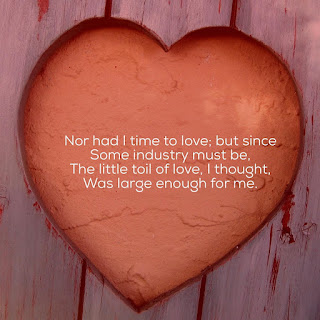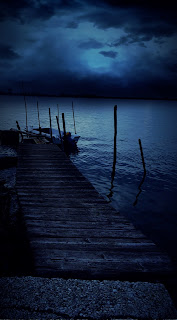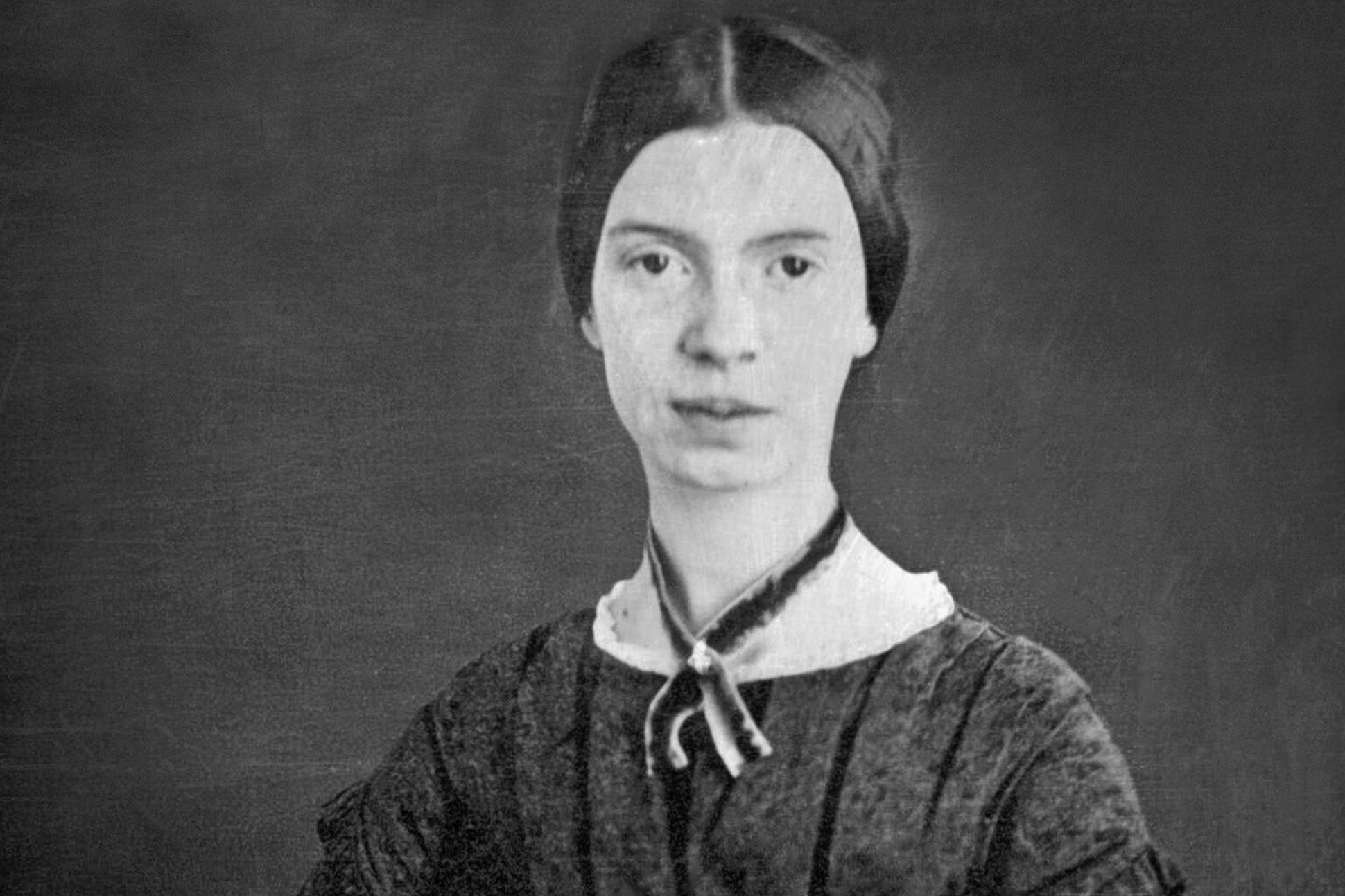Awake ye muses nine, sing me a strain divine,
Unwind the solemn twine, and tie my Valentine!
Oh the Earth was made for lovers, for damsel, and hopeless swain,
For sighing, and gentle whispering, and unity made of twain.
All things do go a courting, in earth, or sea, or air,
God hath made nothing single but thee in His world so fair!
The bride, and then the bridegroom, the two, and then the one,
Adam, and Eve, his consort, the moon, and then the sun;
The life doth prove the precept, who obey shall happy be,
Who will not serve the sovereign, be hanged on fatal tree.
The high do seek the lowly, the great do seek the small,
None cannot find who seeketh, on this terrestrial ball;
The bee doth court the flower, the flower his suit receives,
And they make merry wedding, whose guests are hundred leaves;
The wind doth woo the branches, the branches they are won,
And the father fond demandeth the maiden for his son.
The storm doth walk the seashore humming a mournful tune,
The wave with eye so pensive, looketh to see the moon,
Their spirits meet together, they make their solemn vows,
No more he singeth mournful, her sadness she doth lose.
The worm doth woo the mortal, death claims a living bride,
Night unto day is married, morn unto eventide;
Earth is a merry damsel, and heaven a knight so true,
And Earth is quite coquettish, and beseemeth in vain to sue.
Now to the application, to the reading of the roll,
To bringing thee to justice, and marshalling thy soul:
Thou art a human solo, a being cold, and lone,
Wilt have no kind companion, thou reap'st what thou hast sown.
Hast never silent hours, and minutes all too long,
And a deal of sad reflection, and wailing instead of song?
There's Sarah, and Eliza, and Emeline so fair,
And Harriet, and Susan, and she with curling hair!
Thine eyes are sadly blinded, but yet thou mayest see
Six true, and comely maidens sitting upon the tree;
Approach that tree with caution, then up it boldly climb,
And seize the one thou lovest, nor care for space, or time!
Then bear her to the greenwood, and build for her a bower,
And give her what she asketh, jewel, or bird, or flower —
And bring the fife, and trumpet, and beat upon the drum —
And bid the world Goodmorrow, and go to glory home!

Background: An Unusual Emily Dickinson Poem Urging a Young Man to Marry
This is definitely an unusual poem by Emily, perhaps her early ones. It has a very different meter. It is much longer than her characteristic poems. More importantly, it lacks the convolutions and mystery of her later work which makes her later work so wondrous. But it is still joyful for me.
The poem opens with an invocation to the muses, but then instead of splitting into quatrains, which most of Dickinson's poems do, it sits in one lump chunk on the page. Gone is her Germanic style capitalization of nouns and her liberal sprinkling of dashes; although she does manage to insert a couple of dashes into the final three lines!
Emily's speaker is addressing a young man, exhorting him to select a sweetheart and marry her. The main theme of this poem, then, plays out similar to the Shakespearean "Marriage Sonnets," in which the speaker also is urging a young man to marry. However, instead of the urgent seriousness of the Shakespearean sonnets, Dickinson's poem is a playful Valentine.
According to Richard B. Sewall's The Life of Emily Dickinson, that young man is Elbridge Bowdoin, who served as a partner in Emily's father's law office. Emily's Valentine poem, sent in 1850 with the return of a book to Bowdoin, may be seen as flirtatious; however, Bowdoin did not seem to notice or anyway spurned the advice of the poem, remaining a bachelor for life.
My Favorite Themes: 1. Oneness
Awake ye muses nine, sing me a strain divine,
Unwind the solemn twine, and tie my Valentine!
Oh the Earth was made for lovers, for damsel, and hopeless swain,
For sighing, and gentle whispering, and unity made of twain.
Longer poems whether they are Indian classics like Ramayana and Mahabharata, or Bhagwad Gita, or Guru Granth Sahib, start with an invocation. Here Emily Dickinson playfully adds an invocation to all nine muses to help her the most important activity that she is going to be talking about in this poem.
She claims that the purpose for anyone to be on earth is to fall in love, for all those plays of love like sighing and whispering and for two to become one. I love the rhymes here. The lines reminds me of Guru Arjan's
Gobind Milan Ki Eh Teri Bariya. You have attained this human birth so you can be one with Gobind.
My Favorite Themes: 2. Wedding Guests
The bee doth court the flower, the flower his suit receives,
And they make merry wedding, whose guests are hundred leaves;
The reference of the wedding guests reminds me of Kabir's
Gao Gao Ri Dulhai: Sing O Soul bride, Sing songs of bliss for King Raam has come home to wed me.
My Favorite Themes: 3. Mortality
The worm doth woo the mortal, death claims a living bride,
Night unto day is married, morn unto eventide;
Mostly this is a light-hearted poem. So its interesting to also have death included. She is trying to say love is unavoidable like death.
Comments from Readers
Jodde: "Frankly I think it’s absolutely brilliant how Dickinson is able to weave together the Old and New Testament. The references to Adam and Eve are obvious, and it is obvious that these people are written of in the Old Testament. After explaining how Adam and Eve were the original lovers and that the Earth was made for them, she rewords Jesus’ “seek and ye shall find” and does so beautifully. The poem seems to be about seeking love, and Dickinson is confident that she will find it. Though she may have never found it in a marital sense, she certainly found it in the adoration of her work. Anyway, the whole poem illustrates her brilliant use of Scripture."
More:


















 Singing oneness!
Singing oneness!